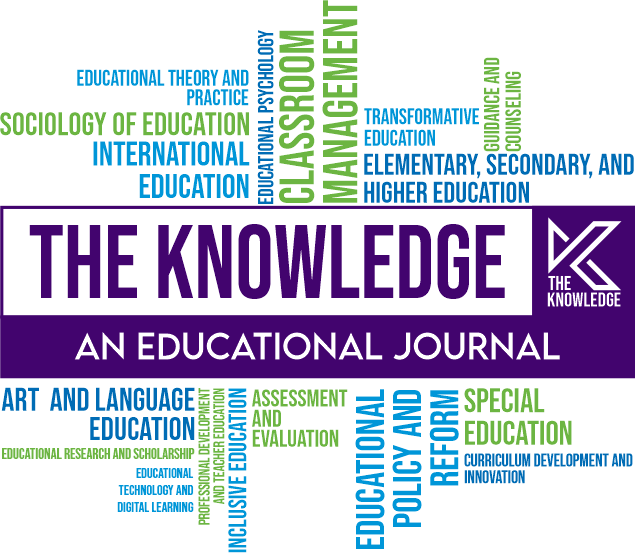Ethical Guidelines For Reviewers
As reviewers for "The Knowledge," a distinguished educational journal, your contributions play a crucial role in maintaining the quality, integrity, and credibility of academic scholarship. Your commitment to upholding ethical standards in the peer review process is essential to ensuring the validity and rigor of published research. The following guidelines are intended to guide your conduct as a reviewer:
- Confidentiality and Conflict of Interest: Reviewers must treat all manuscript submissions as confidential documents and refrain from sharing or discussing their content with unauthorized individuals. If a reviewer has a conflict of interest that may bias their evaluation, they should disclose this information to the editor promptly.
- Objectivity and Constructive Feedback: focusing on the quality, originality, and significance of the research. Comments and recommendations should be clear, specific, and aimed at improving the overall quality of the work.
- Timeliness and Responsiveness: Reviewers are expected to complete their evaluations in a timely manner according to the journal's guidelines and deadlines. If unable to meet the deadline or provide a thorough review, reviewers should notify the editor promptly to allow for alternative arrangements.
- Expertise and Qualifications: Reviewers should possess the necessary expertise, qualifications, and experience in the subject matter under review to provide a thorough and insightful assessment of the manuscript. If a reviewer feels unqualified to evaluate certain aspects of the research, they should communicate this to the editor.
- Respectful Communication: Reviewers should communicate their feedback and criticisms in a respectful, professional, and constructive manner, avoiding personal attacks or derogatory language. Critiques should focus on the scientific merits of the work and be free from biases or preconceived notions.
- Compliance with Journal Policies: Reviewers should familiarize themselves with the editorial policies, submission guidelines, and ethical standards of "The Knowledge" and adhere to them in their evaluations. Any concerns regarding ethical issues or publication practices should be raised with the editor for further investigation.
- Continuous Learning and Improvement: Reviewers are encouraged to engage in ongoing professional development, peer review training, and knowledge-sharing to enhance their skills as critical evaluators of scholarly research. Constructive feedback from editors and authors can also facilitate personal growth and improvement.
- Transparency and Accountability: Reviewers should conduct their reviews transparently and objectively, disclosing any potential biases, conflicts of interest, or limitations in their assessment. Honesty, integrity, and accountability are fundamental principles in maintaining the trustworthiness of the peer review process.
By adhering to these ethical guidelines, reviewers contribute to the advancement of knowledge, academic excellence, and intellectual integrity within the scholarly community. Your dedication to upholding ethical standards in peer review is essential for fostering a culture of transparency, rigor, and professionalism in academic publishing.
For inquiries or clarifications regarding these guidelines, please contact the editorial office at [email protected]





